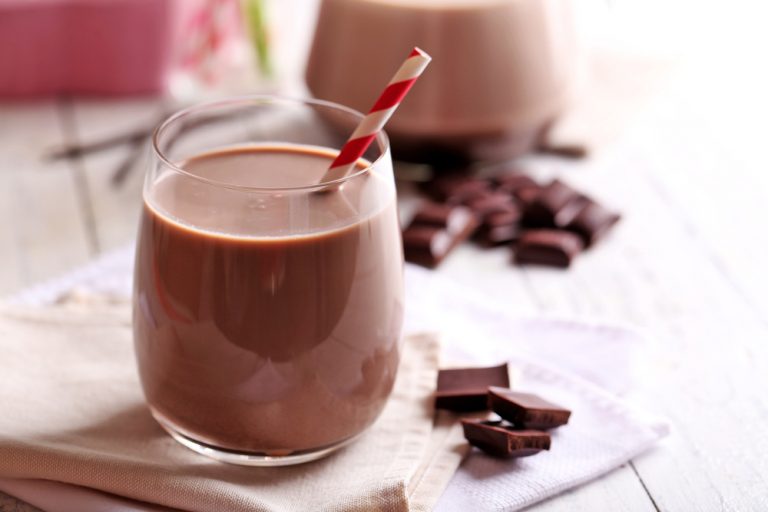Sounds a bit abstract? And yet it is not - scientists have taken chocolate milk under the test. An even greater shock may be that the results are quite promising. And the cherry on the top is the fact that chocolate milk was not used for the first time in the protocol of scientific research!
Is flavoured milk healthy?
However, the thing - flavoured milk (including chocolate, of course) is not associated with anything particularly nutritious and desirable in a healthy diet. Oh, milk with the addition of sugar and cocoa (of course that’s the perfect case when the list of ingredients is not much longer ...). Yes, in the diet of the average Smith, this product may not prove to be the optimal one, active people, however, are measured with from a slightly different perspective. Consider - carbohydrate drinks, large amounts of dried fruit, jelly beans, white bread - are products recommended to the general population?
Of course, not, are you crazy?!
Athletes, on the other hand, often reach for them consciously. In fact, these products are often used in active people nutrition as less problematic than healthy substitutes!
A test that can get your mind mixed up
The experiment to which I would like to refer was published recently, because on February 12 in the journal of the International Association of Nutrition in Sport, and thus a very respected scientific magazine.
The team led by Katelyn Born recruited 103 athletes at the middle age of 15, who were divided into two groups. It was planned to observe how the development of their strength will be influenced by the consumption of our today's hero - chocolate milk, in comparison with carbohydrate intake. The duration of the experiment covered the trial week and the end week as well as the 4 weeks of the main experiment during which each group trained 4 times a week. During this period one of the groups consumed a carbohydrate drink (42g of sugars), whereas the other group - chocolate milk with a similar carbohydrate content (44g). As a result, it was observed that despite the lack of significant differences in the bodyweight of participants - the group receiving milk significantly improved muscular strength!
Not so colourful...
However, it is impossible to notice significant limitations of this study, among which the most important is the selection of a milk substitute. Researchers stress that their work is the first one comparing chocolate milk to carbohydrates and it can be assumed that it will be used in sports nutrition by sportsmen. However, if we compare both products side by side (which scientists, of course, did in tabular form) - we can observe that a portion of milk provided almost twice as much energy (300 vs. 160kcal), was a source of protein (16 vs. 0g) and fats (5 vs. 0g)

Is milk doing some muscle magic right here?
I would rather be inclined towards the issue of higher energy supply and, above all, protein content that maximizes muscle protein synthesis processes. A similarly surprising effect in 2017 was met by Canadians, documenting a stronger anabolic response on whole eggs than the proteins themselves - in this study, the differentiating element was fat content and, above all, energy.
The above, however, does not change the fact that if you like chocolate milk - the post-workout period will be the most appropriate time for it!






